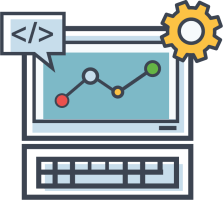INCLASS or ONLINE (hybrid class)
Duration: 2 days
Price: 1.200 CHF
This training is a two-day course designed to introduce the basics of artificial intelligence and robotics. This course explores these technologies from a technical standpoint and their psychological impact on personal and professional lives. It aims to provide a foundational understanding of AI and robotics, focusing on their practical applications and the psychological implications of living and working alongside these technologies.


